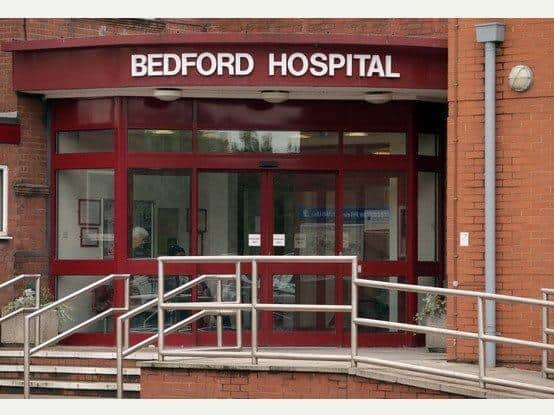Bedfordshire Hospitals Trust fails on cancer treatment target 15 months in a row
and live on Freeview channel 276
Bedfordshire Hospitals Trust breached a key cancer waiting time target 15 months in a row, figures show.
Analysis of national data by Cancer Research UK revealed the target – aimed at making sure the majority of patients sent for urgent cancer investigations are seen within two months – has been missed across England for more than half a decade.
Advertisement
Hide AdAdvertisement
Hide AdThe charity is calling for major investment in services it says were struggling even before the coronavirus pandemic.


The NHS states 85 per cent of cancer patients urgently referred by a GP should start treatment within 62 days.
But NHS England data shows at Bedfordshire Hospitals NHS Foundation Trust fell behind the target in every month between October 2020 and July this year.
In July, just 72 per cent of patients received cancer treatment within two months of an urgent referral.
That was down from 81 per cent in June.
Advertisement
Hide AdAdvertisement
Hide AdThe trust was created in April 2020, following the merger of Luton and Dunstable University Hospital NHS Foundation Trust and Bedford Hospital NHS Trust
Cathy Jones, Bedfordshire Hospitals NHS Foundation Trust's deputy chief executive, said: “The diagnosis and treatment of cancer remains a top priority for us and we have been working with system partners to run extra diagnostic clinics to ensure patients are seen as quickly as possible.”
Last week Bedford Today revealed how Bedford Hospital had introduced new technology to combat the patient backlog
Across England, just 72 per cent of patients received cancer treatment within two months of an urgent referral in July.
Advertisement
Hide AdAdvertisement
Hide AdThe NHS target was last met nationally in December in 2015, while annual performance has worsened year-on-year since 2017.
Cancer Research UK said pressures caused by the pandemic, including a growing list of patients, were a factor, but also laid blame on workforce shortages and insufficient infrastructure.
Professor Charles Swanton, the charity's chief clinician, said: "For people with cancer, every day counts – that is why we have cancer targets.
"I've been working in the NHS for a long time and it’s hard to watch the continuous deterioration, and the anxiety and worsening outcomes this can cause patients."
Advertisement
Hide AdAdvertisement
Hide AdThe charity said a radical reform of screening and diagnostic services was needed, backed up by long-term investment from the upcoming spending review by the Government at the end of October.
Prof Swanton added: "The Government has to commit to long term investment in workforce and kit so that we can turn things around and give patients both the care and outcomes they deserve.”
The Department of Health and Social Care said it was providing record investment for the NHS, including an additional £9 billion for elective and cancer care.
A spokesperson said cancer diagnosis and treatment had remained "a top priority" throughout the pandemic.
"Almost half a million people were checked for cancer in June and July which is among the highest numbers ever," they added.